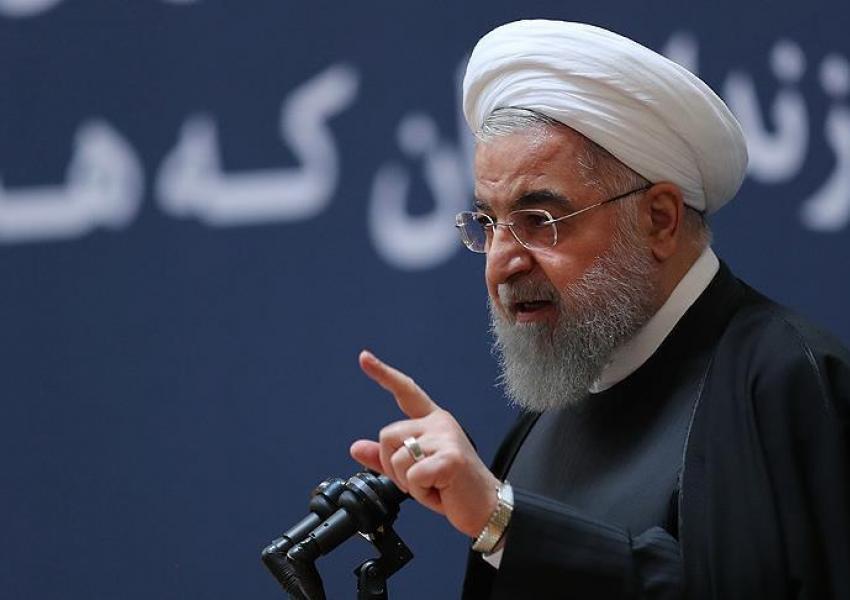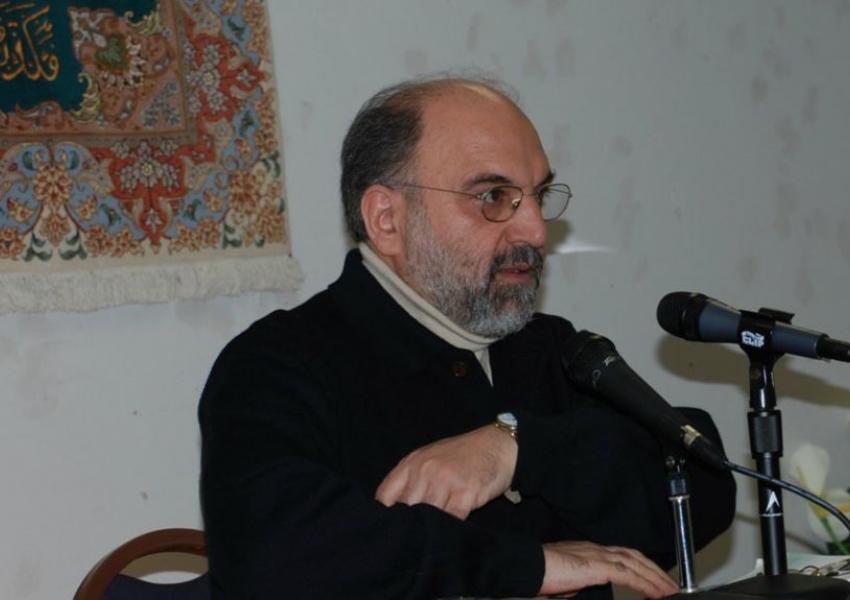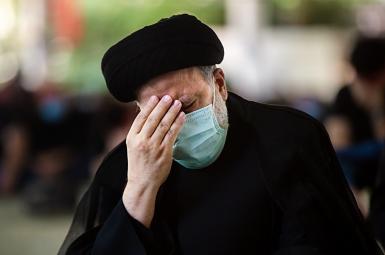
Pundit In Iran Calls On Rouhani To Step Down, Let Others Solve Iran's Problems
Prominent analyst Abbas Abdi in Iran has suggested that President Hassan Rouhani should step down to end the political deadlock in Iran's domestic politics and in its relations with the United States.
In a commentary in the September 27 edition of the reformist daily Etemad in Tehran, Abdi referred to Rouhani's remarks the day before in which the president responding to harsh criticism in the media had bitterly said all of Iran's problems ae rooted in Washington DC.
Abdi suggested that Rouhani should resign not in protest, but to open the way for others to solve the problem.
Meanwhile, conservative politician Mohammad Reza Bahonar has said that "Washington may be responsible for half of Iran's problems, the other half is caused by mismanagement and incompetence" of the Rouhani administration.
Abdi reminded that he had suggested to hold an early election some ten months ago, but Iran's conservatives opposed the idea. "Nonetheless, they can neither tolerate him, nor are they allowed to impeach and remove him," Abdi said, alluding to the fact that Khamenei has insisted Rouhani should remain in office until the end of his term.
Abdi said, "the people couldn't care less about the differences" between the hardliners in the Majles and Rouhani, but they are suffering because of these differences. He added: "During the past ten months no problem has been solved and new problems have emerged. It is not wise to continue this situation."
Referring to fragmented news about "official or unofficial talks between Iran and the White House's representatives," Abdi said that the US presidential election and the characteristics of those who hold political power in Iran are key elements in solving the deadlock between Tehran and Washington.

Undated photo of Abbas Abdi
He further examined various possibilities and opined that the easiest situation for Iran is an easy and outright victory for Joe Biden in America. But even in this best case scenario, the Iranian ruling system needs to become more homogenous and bring about more political participation.
Abdi suggested that now that the ruling conservatives lack the will and power to impeach him, Rouhani should volunteer to resign so that the country could benefit from the upcoming situation between Iran and the United States.
Referring to the fact that less than ten months remain before the end of Rouhani's term of office, Abdi stressed: "It is really better that someone else steers the country during the next ten months to solve its problems.”
He added: "If Rouhani blames Washington for rising prices, then the man who cannot negotiate with Washington should step down and pave the way for others to take action. And he should do that for the sake of the country and the people."
According to the book Truth and Freedom, A Long Interview with Abbas Abdi, (2001, Hamshahri Publications, Tehran) by Ebrahim Nabavi, Abdi was a well-known "anti-imperialist" university student in 1979 when the Islamic revolution took place. He defended the hardliners in the core of the regime against liberal President Abolhassan Banisadr, the Marxist groups and the Mojahedin-e Khalq (Mek) in the early 1980s. Later he went to Shiraz with a group of leftist students to confiscate rich landowners' lands.
Abdi was one of the students who seized the US embassy in 1979 and took more than 50 US diplomats hostage for 444 days. Later in the 2000s he went to Paris to meet with and apologize to one of the hostages Barry Rosen.
Abdi worked for Iran's Judiciary in the 1980s and 1990s when he became the editor of Islamic leftist newspaper Salam that was launched by his boss Mohammad Khoiniha, a leftist cleric who had masterminded the seizure of the US embassy.
According to the book, he also spent some time in Lebanon in the 1980s when anti-imperialist Iranian students were active there.
Later he joined the Strategic Studies Center, a think tank affiliated with the office of pragmatist President Akbar Hashemi Rafsanjani. Oddly enough most of those at the center, including Abdi, were Rafsanjani's staunch critics.
In early 1990s, when the reform movement began in Iran, Abdi became known as one its theoreticians.
Abdi was imprisoned in Iran, once in 1993 for his articles in Salam and again in the early 2000s on charges of selling information to the United States after he collaborated with a US polling agency. He was also jailed after the disputed 2009 presidential election.
Former diplomat Abbas Amir Entezam, one of the longest serving prisoners in Iran, had said that Abdi was one of the officers who interrogated him at Evin Prison in the 1980s on charges of spying for America, but Abdi has always denied the accusation.








